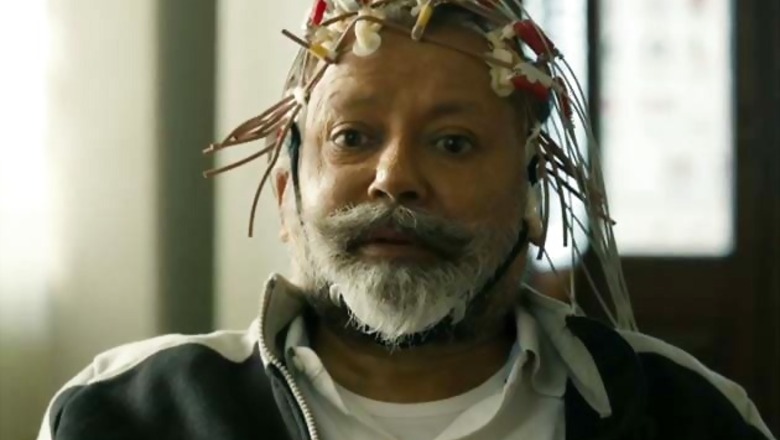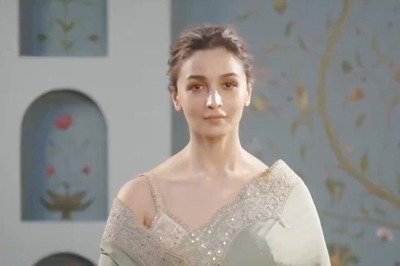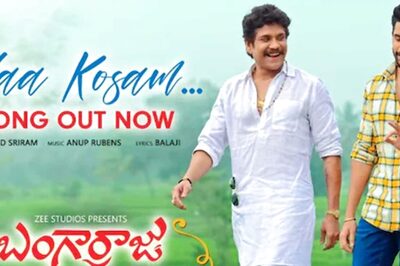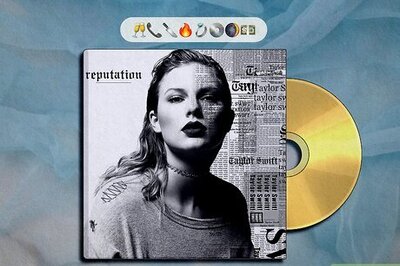
views
In an age of 100 crore clubs and instant gratification, very few filmmakers have the vision and valour to traverse the path less-travelled and remain true to their cinematic conviction. Vishal Bhardwaj is one such maverick who has managed to dish out movies, without ingratiating to the market forces, which had tremendous aesthetic value to enamour connoisseurs of cinema but at the same time turned out to be profitable ventures at the box office.
At a time when superstar like Salman Khan makes directors look insignificant and peripheral in the whole scheme of movie-making, every montage of Bhardwaj's movies bear his distinct and unmistakable stamp firmly asserting the old adage, 'A director is the captain of the ship'.
His world is dark but delectable; enigmatic but enchanting; poignant but poetic; tragic but thrilling. Bhardwaj is a rare breed who is hard to categorise; he isn't a hard-core commercial director neither does he belong to the avant garde, making small-time multiplex movies. He mastered the art of adapting the Shakespeare's plays into top-flight movies, such as Maqbool (Macbeth) and Omkara (Othello), and won high encomium from critics and moviegoers.
Besides being an ace storyteller, he's also a sublime music director who has composed music in movies like Maachis, Satya, Godmother (for which he won National Award for Best Music Director), Maqbool, Omkara, Kaminey, Ishqiya (National Award for Best Music Director) and 7 Khoon Maaf. His collaboration with Gulzar has been highly successful and they weaved magic whenever they came together. The master lyricist proclaims that after RD Burman, Vishal Bhardwaj is the composer who has brought the best out of him and working together gives him an unparalleled creative delight.
Another riveting hallmark of Bhardwaj is his uncanny ability to extract the superlative performances from his artists which redefined their image, became a rite of passage in their respective careers and won them various awards. Maqbool (2003) gave a brilliant actor like Pankaj Kapur his first significant role after Ek Doctor Ki Maut (1991) and his haunting portrayal of Jahangir Khan (alias Abba Ji) in the movie earned him a Filmfare Award for Best Actor (Critics) and a National Award for Best Supporting Actor. Tabu's splendid show is rated as one of the most accomplished performances of her illustrious career.
Omkara (2006) did wonders for Saif Ali Khan and Kareena Kapoor. Saif's career was resurrected by Dil Chahta Hai (2001) and he was propelled to the A-list with the success of Hum Tum (2004) but after that he became repetitive and stereotyped doing the same kind of roles - of an urbane guy who's funky and funny (Dil Chahta Hai, Kal Ho Na Ho, Hum Tum, Salam Namaste).
In Omkara, he performed the role of an uncouth, wily and wicked Langda Tyagi, which was in sharp contrast to his previous roles, who's slighted by envy and seeks vengeance from Othello. He carried off the complex character with refined felicity and aplomb. Saif sank his teeth into the character and internalized the nuances, mannerisms and dialect of Western Uttar Pradesh to the tee. He stole the thunder from the likes of Ajay Devgn, who too whipped out an intriguingly intense performance, and Vivek Oberoi. His mind-boggling tour de force compelled critics to anoint it as his finest performance and earned him the Filmfare Best Villain Award.
Just like Saif, the movie saw Kareena ringing up copious adulation and awards. She infused wide-eyed innocence and vulnerability in Dolly's charcter and marked her arrival as an exceptionally competent performer. Though she was hailed as a fine female actror ever since she made her debut in Refugee (2000), no movie till Omkara captured and did justice to her splendid acting virtuosity. She bagged Filmfare Best Female Actor for the movie and since then has gone strength-to-strength to cement her place as one of the most versatile actresses of his time.
Even Konkona Sen Sharma, who had a relatively small part, stood out and garnered National Award for Best Supporting Actress.
Kaminey (2009) did to Shahid Kapoor what Omkara did to Saif. After becoming a heartthrob from his debut film Ishq Vishk (2003), Shahid was tagged as lover boy and did a string of utterly forgettable movies like Dil Maange More, Shikhar, 36 China Town and Fool n Final. Though Vivah (2006) and Jab We Met (2007) gave him some respite, he couldn't move beyond the archetype chocolate hero roles. His growth as an actor came to a standstill and that's when Bhardwaj came to his rescue.
Kaminey was a complete departure from the kind of flicks and roles Shahid had done and he passed the litmus test with flying colors by notching up lashings of laurels for his twin roles - Charlie and Guddu - in the movie. He enacted the part of twin brothers, with speech impediment and warped characters, with gusto and exhibited his range as an actor to recon. Priyanka Chopra pushed the envelope and chipped in another first-rate performance after receiving rave reviews for Fashion (2008) a year earlier. It was the first time in her career that she shed the 'glam' image and did a role of a traditional Maharashtrian girl.
Bhardwaj repeated Priyanka in his next flick 7 Khoon Maaf and though the movie wasn't a patch on his earlier oeuvres, it nevertheless won Priyanka Filmfare Critics Award for Best Actress. His new offering is highly-anticipated Matru Ki Bijlee Ka Mandola, releasing on January 11, which looks radically different from his previous movies. From the promos, the movie seems like a breezy, fun-filled flick with a twist. For the first time, Bhardwaj has apparently switched the genre and decided to go for something light-hearted rather than high-voltage dark and intense drama which is his bastion.
The movie brings Imran Khan and Anushka Sharma together for the first time on the silver screen. While Anushka has shown remarkable gumption in her choice of movies and has played varied characters in Rab Ne Bana Di Jodi, Badmaash Company, Band Baaja Baaraat and Jab Tak Hai Jaan, Imran is still clinging to his boy next door image.
Despie churning out hits like Jaane Tu Ya Jaane Na (his debut movie as a lead actor), I Hate Luv Storys, Delhi Belly, Ek Main Aur Ekk Tu and Mere Brother Ki Dulhan, he's still in search of a movie which gives him recognition and plaudit as an actor. He's seen as an endearing romantic hero rather than a powerhouse of talent like his contemporary and rival Ranbir Kapoor who has surged way ahead by establishing himself as the most versatile and skillful actor his generation.
Like Imran, Ranbir also started as a romantic hero with Saawariya (2007), Bachna Ae Haseeno (2008) and but later expanded his repertoire and tuned into to more performance-oriented and profound characters and unfurled Rocket Singh: Salesman of the Year, Rajneeti, Rockstar and Barfi - all of which amply substantiated his credential of being spectacularly versatile, sensitive and thoughtful actor.
Matru Ki Bijlee Ka Mandola features terrific actors like Pankaj Kapur and Shabana Azmi and it'll be interesting to watch whether Imran can hold his own. To his aid, Bhardwaj is at the helm of affairs who is known to throw new challenges to his actors, mould them effortlessly and extract the best out of them. He has an eye for the talent and has transformed and redefined the careers and onscreen images of myriad actors. Imran is currently standing where Saif and Shahid were before Omkara and Kaminey happened to them.
In an industry which works on perception, the movie might open the floodgates for the young and talented actor, and the audience and film fraternity start taking him more seriously. The promos suggest that Imran is essaying a character which is completely different from his usual self and what he has done before. It'll be critical from here on that he takes a cue from his uncle Aamir Khan's career and becomes more wise and discreet in the selection of movies. Spunky Anushka looks set to add another winsome whammy to her kitty and usher a new dimension to her career and personality. From the look of things, dice is certainly rolled in their favour.

















Comments
0 comment